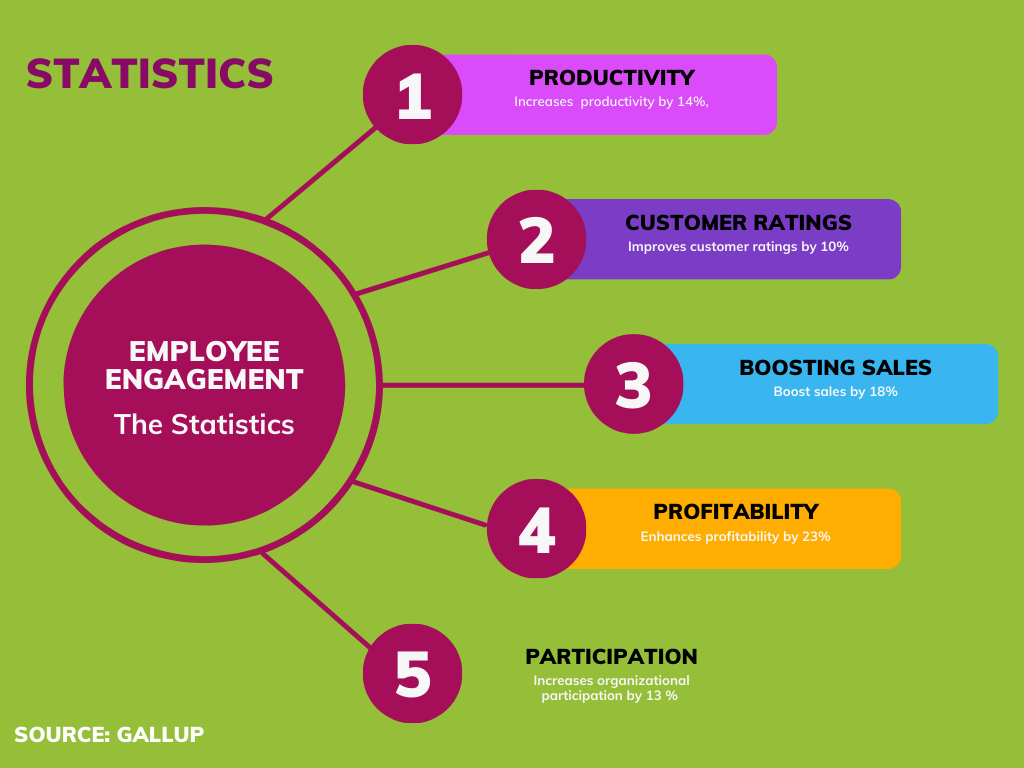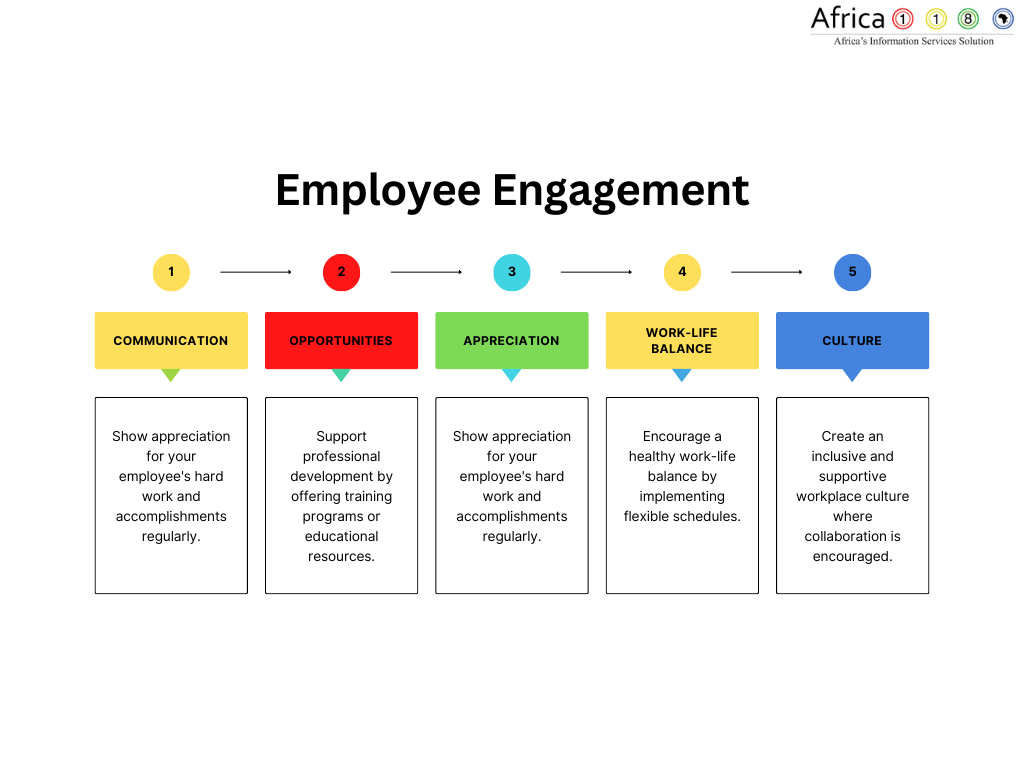The lack of understanding and knowledge surrounding employee engagement presents a significant challenge within the workplace. Although there is a consensus regarding the importance of engaged employees for achieving organizational success, there exists a pressing need for clarity on the true essence and characteristics of employee engagement.
To address this issue, this article will provide an in-depth exploration of the concept of employee engagement, offering valuable insights into its benefits.
Employee engagement explained
Quantum Workplace, a provider of intelligent solutions for employee productivity, offers a comprehensive definition of employee engagement. According to their description, employee engagement is defined as “the extent to which employees form a strong mental and emotional connection with their work, teams, and organization.”
Besides that, a fact-finding employee engagement survey by Gallup reveals that engaged employees increase productivity by 14%, improve customer ratings by 10%, boost sales by 18%, enhance profitability by 23%, and increase organizational participation by 13%. Additionally, the detailed survey indicates that companies that prioritize employee engagement achieve better outcomes compared to those that do not.

Similar research findings by The Harvard Business Review, emphasize that recognizing and valuing employees as integral to the company’s vision plays a significant role in driving revenue growth. Surprisingly, the data concludes that only 36% of employees feel this sense of value adding that a company culture that supports an experience mindset understands the intrinsic connection between what it does internally for employees and how that translates into its customers’ experiences.
These findings underscore the importance of addressing workplace mental health concerns to promote employee engagement.
Defining an engaged workforce
Engaged employees typically exhibit the following behaviours daily:
1. They go above and beyond by investing additional time and effort to deliver exceptional work.
2. They Proactively suggest improvements and actively participate in finding innovative solutions.
3. Consistently offering assistance to colleagues who are encountering difficulties.
4. They become brand ambassadors by sharing their positive experiences to attract others to the company.
5. They embody company values with sincerity and make decisions with integrity.
6. Finding joy in coming to work each day and expressing gratitude for their overall work experience.
Benefits of employee engagement
Employee involvement in decision-making has been shown to have a positive impact on innovation and employee engagement. In the Deloitte 2023 Global Human Capital Trends survey, organizations that actively engaged workers in the design and implementation of organizational change reported experiencing favourable outcomes. Specifically, leaders who embraced the concept of co-creation with their employees reported having a workforce that was 1.8 times more likely to be highly engaged, 2 times more likely to exhibit innovative behaviour, and 1.6 times more likely to effectively anticipate and respond to change compared to their counterparts.
According to findings from the State of the Global Workplace: 2023 Report, there is evidence suggesting a positive trend in employee engagement. After experiencing a decline during the pandemic in 2020, employee engagement has rebounded and reached an all-time high of 23%. Besides that, a greater number of employees are finding their work meaningful and are establishing stronger connections with their team, manager, and employer.
Overall, engaged employees tend to have higher levels of job satisfaction. Again, when people feel valued and appreciated for their contributions, they are happier in their roles. This not only improves employee morale but also reduces turnover rates. Consequently, organizations that prioritize engaging employees often experience lower recruitment costs as well as increased retention of top talent.
How to improve employee engagement
Improving employee engagement is crucial for creating a productive work environment. Additionally, engaged employees are motivated, committed, and satisfied with their jobs. Here are some strategies to enhance employee engagement:
1. Foster open communication: Promote open communication through regular interaction between managers and employees. Active listening demonstrates the value placed on employees’ ideas and concerns.
2. Provide growth opportunities: Support professional development by offering training programs or educational resources for skill enhancement. Moreover, when employees see potential for growth within the company, it boosts their motivation and engagement levels.
3. Recognize achievements: Show appreciation for your employee’s hard work and accomplishments regularly. A simple thank-you note or public recognition can go a long way in making them feel valued.
4. Promote work-life balance: Encourage a healthy work-life balance by implementing flexible schedules or remote work options. Supporting your employee’s personal lives demonstrates that you care about their overall well-being.
5. Cultivate a positive work culture: Create an inclusive and supportive workplace culture where collaboration is encouraged rather than competition. Celebrating diversity fosters an environment of trust and respect among all team members.
Remember that improving employee engagement requires an ongoing effort from management and individual contributors alike!

Conclusion
Employee engagement is crucial for creating a productive and thriving work environment. Furthermore, when employees are engaged, they feel motivated, valued, and connected to their work and the organization as a whole. This leads to increased productivity, improved job satisfaction, higher retention rates, and ultimately better business outcomes.
Employee engagement is the emotional commitment an employee has towards their work and organisation. It goes beyond mere job satisfaction or happiness; it involves actively participating in the goals of the company and being invested in its success.
What’s more, engaged employees are more likely to go above and beyond in their roles, taking initiative and seeking out ways to improve processes or solve problems. They have higher levels of creativity and innovation because they feel empowered to contribute their ideas. Finally, engaged employees have better relationships with colleagues, fostering teamwork, productivity and collaboration.
To learn more about Africa 118 Inc. visit: LinkedIn, Facebook, Twitter


